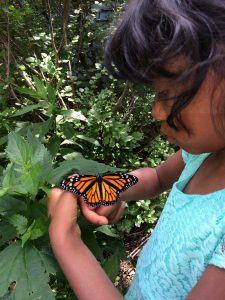Welcome to West Cook Wild Ones
West Cook Wild Ones shares information with landowners about how important their landscaping choices are. We are a membership-based non-profit organization. Membership makes sure our chapter stays strong. Please consider becoming a member. We share our ideas, skills, and knowledge with others so that their yards can be hospitable to other animals. Working together, we all can ensure the continuation of ecosystem benefits we receive from healthy, beneficial animal and plant populations. We stand with science and enact what we learn in our landscapes. We accomplish these goals by:
- providing educational monthly programs about our native ecosystems, native gardening, and other related topics to the public;
- hosting a native plant sale, which helps people get ethically sourced and sustainably grown plants from local growers at a great price;
- creating a social media community where we share what’s happening in local
 gardens as well as scientific articles that connect to native plants and biodiversity;
gardens as well as scientific articles that connect to native plants and biodiversity; - collaborating with other local environmental organizations;
- developing online and print resources;
- sponsoring conferences where we have nationally recognized speakers present;
- creating a wildlife corridor (stepping stone model) that offers refuge to all kinds of beneficial urban wildlife.
If you’d like to help us accomplish all of these goals (and more!), please consider volunteering. Click here to sign up: Volunteer.
If you’d like to receive our latest news, sign up for our newsletter. Click here to sign-up: Get Newsletter
